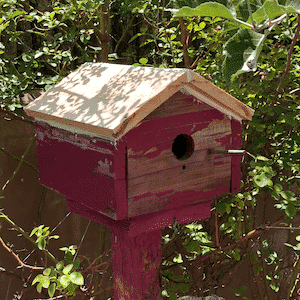 We all have our bit of perfectionism — idealistic traits that, while usually grounded in good intent, can end up impeding progress to a point of diminishing returns. How often have you set out upon a project only to find yourself hopelessly entangled in a web of details? Have you rationalized the details as important despite how unlikely any of which would be to doom your project if put aside?
We all have our bit of perfectionism — idealistic traits that, while usually grounded in good intent, can end up impeding progress to a point of diminishing returns. How often have you set out upon a project only to find yourself hopelessly entangled in a web of details? Have you rationalized the details as important despite how unlikely any of which would be to doom your project if put aside?
In a few circumstances such attention to detail might be critical; for most it is not. If you’re like me you might find it hard to tell the difference. Leaving something in a “good enough” state of completion can create a lot of anxiety; even I as I write this I am aware of my desire to find exactly the right words when any number words would effectively convey my points. It slows me down and I get frustrated, to a point where I am aware that spending the extra time really doesn’t have any return on the investment.
I’ve heard it said that perfectionism is a form a procrastination. In many, maybe most, situations I would have to agree. I think I heard Wayne Dyer talk once about encouraging us to consider striving for “good enough.” Not perfection and not subpar. But, simply, good enough. I’ve practiced doing a good enough with some things this week here is what I learned:
- Being good enough was far better than what I saw many around me accomplishing.
- Being good enough got the job done; it allowed me freedom to agree on an endpoint that was sufficient to the task at hand and allowed for an easy exit.
- Being good enough allowed for an attainable reward of accomplishment.
- Being good enough allowed for realistic expectations that could be met.
- Being good enough set an achievable precedent by which I might choose to measure future tasks.
- There was a certain charm in my imperfection; uniqueness; individuality.
My birdhouse pictured here is far from perfect and at the same time it’s good enough. The roof had been broken off; I fixed it. Would the birds be any happier or safer if I had pushed on to a more perfect completion? Would the returns have been worth pushing to that place of perfection? I think there’s a certain charm in the perfectly imperfect endpoint I chose. Rustic and weathered are nice qualities that would have been lost had I striven for perfection!
This week I encourage you to intentionally practice finding ways to experience a good enough life. Identify at what point there might be diminishing returns for completing a project if you were to keep at it and agree to stop before you get to that point.
Notice the anxiety you may have about stopping when something is simply good enough and ask yourself, What does the anxiety say about me? What can I learn from it? What consequences do I fear if I were to walk away after choosing a good enough endpoint? Are they realistic? Do they really matter?
Then decide. What tasks can be checked off as complete when they are good enough? What others really do need me to go the extra mile?
Scroll down and let us know your experiences and thoughts! Commenting now will give more power to your journey, encourage others, and set up a vibrational flow where the Universe brings you even more satisfaction in a life lived “good enough” with more time and energy to devote to the things you love!
With Blessings and Gratitude,
From Santa Fé, New México
Dr Mark
